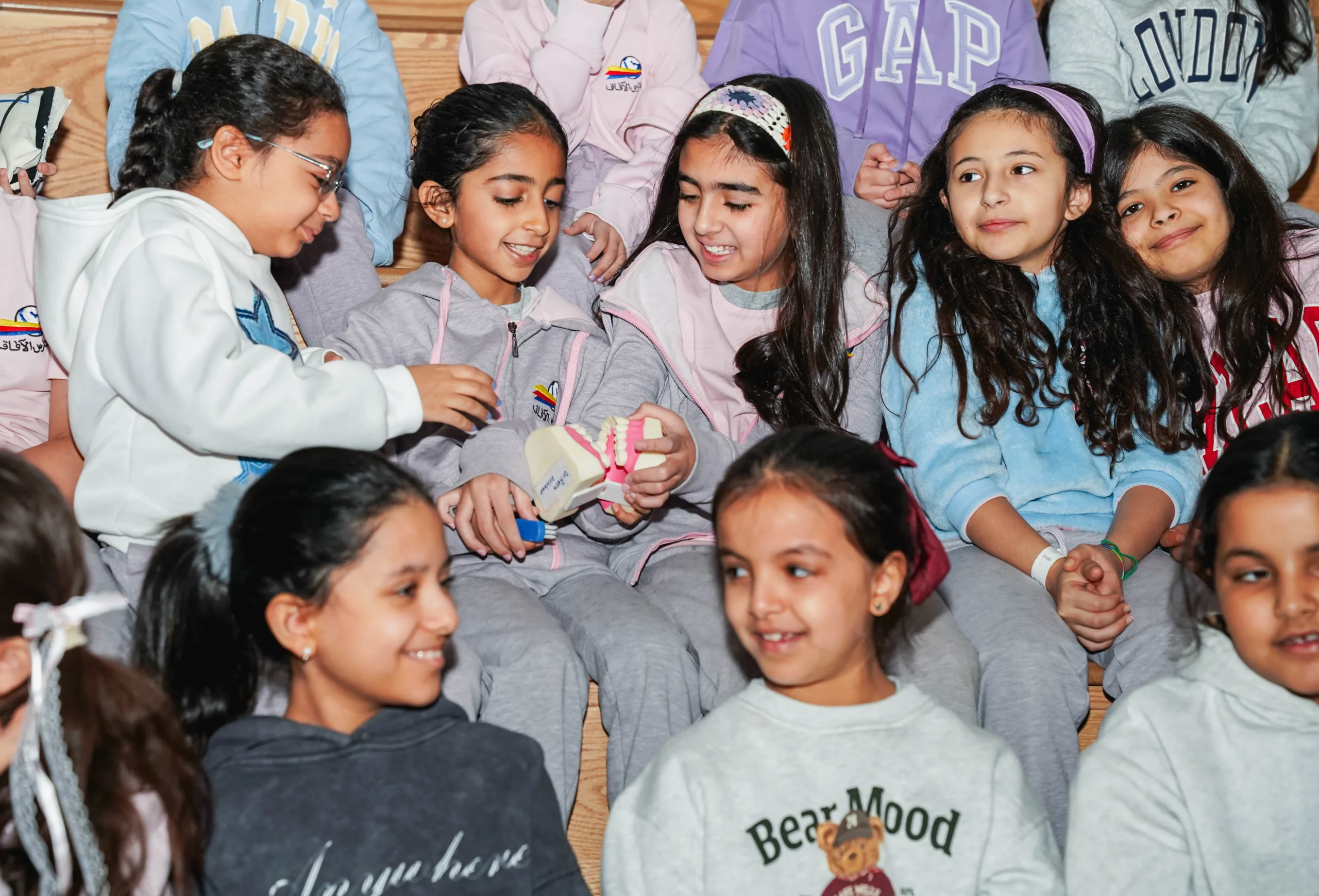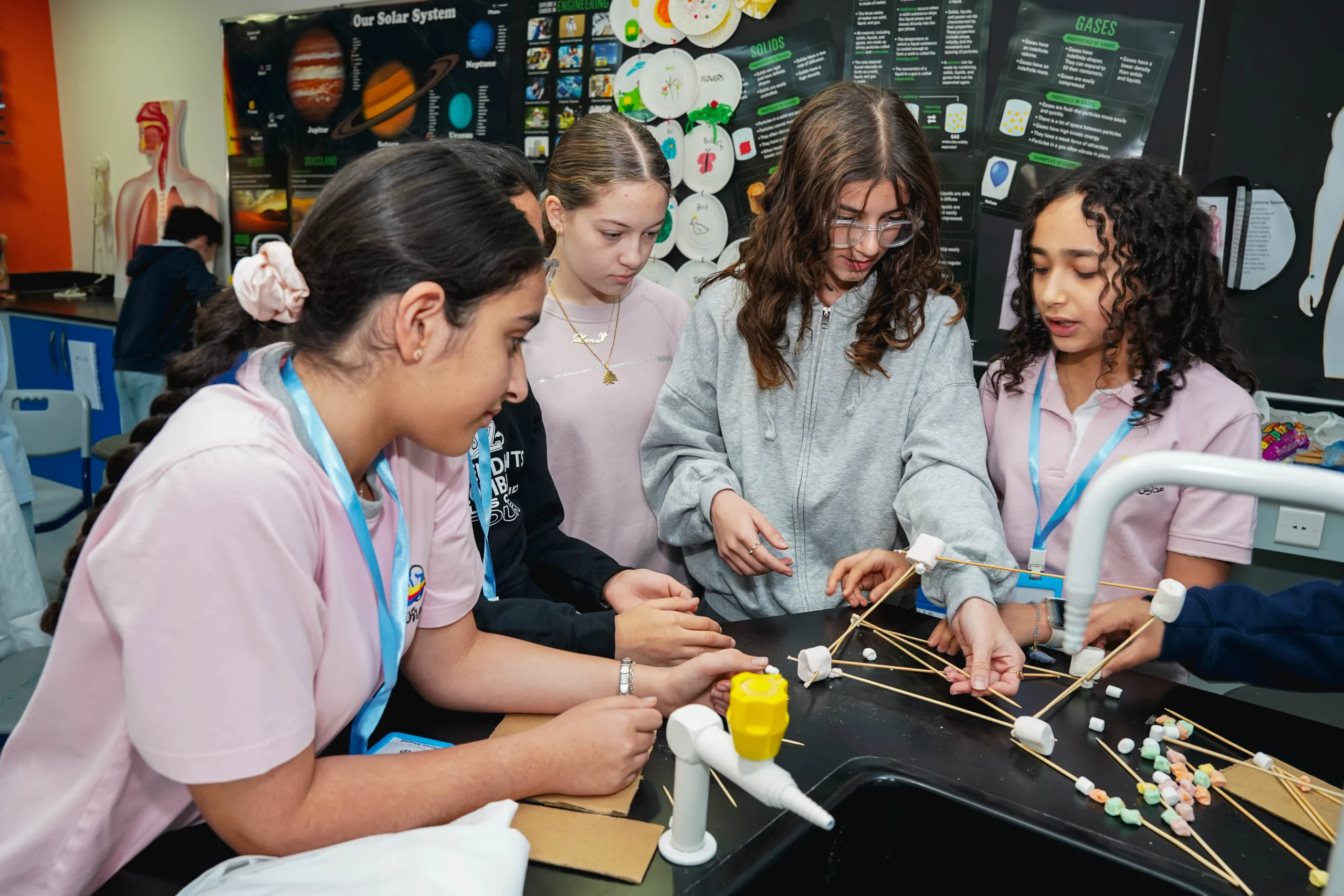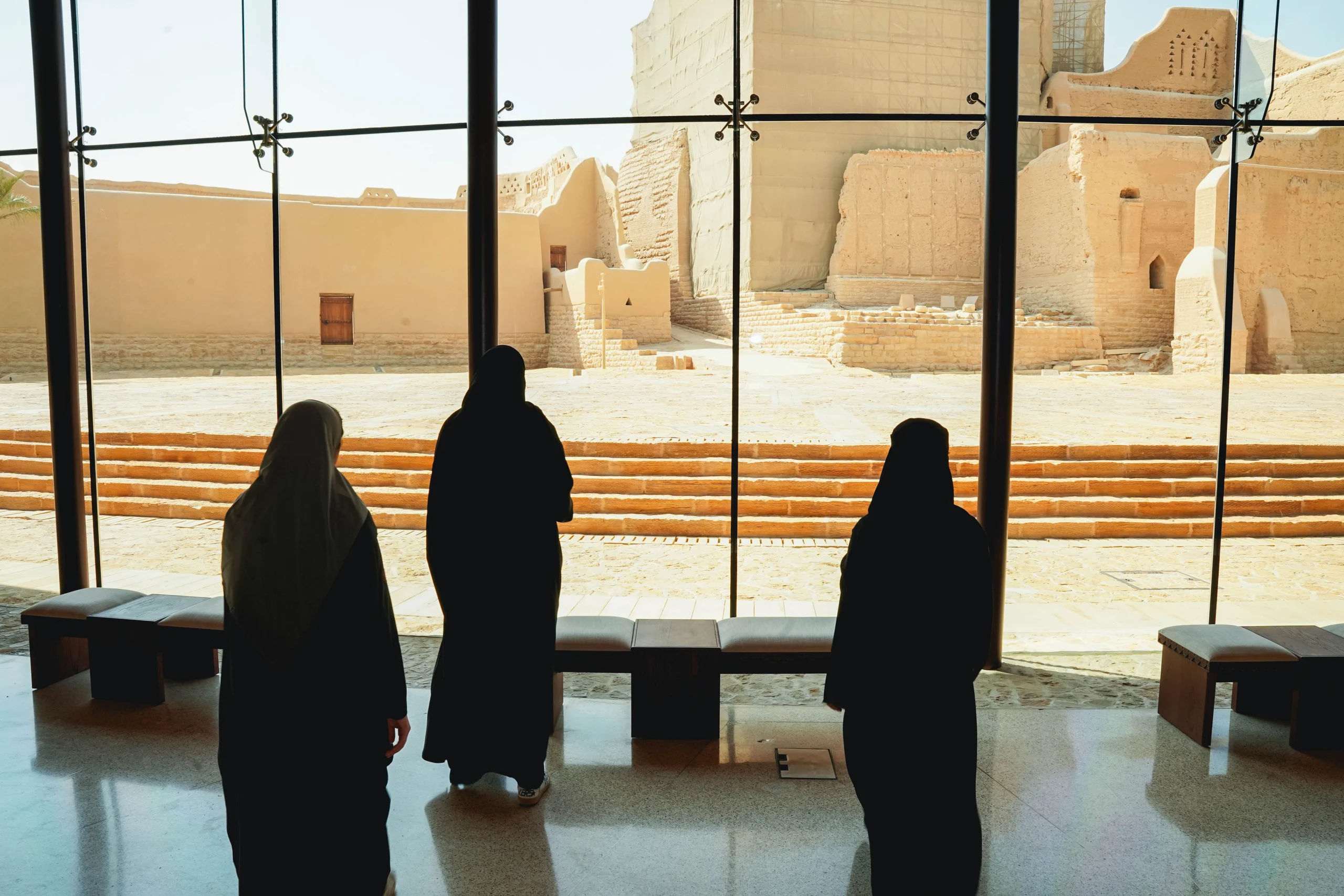KG















Nursery Program
The nursery is based on many principles, such as enhancing effective teamwork, helping students build positive relationships, encouraging sharing, playing with friends, and motivating students’ expression and conversation by using new and familiar words. This is important in stimulating and motivating children to learn, be independent, and be self-reliant.
The role of the nursery is to empower the students by making them active, interactive, and participating while being happy. Through our program and policies, which follow the Montessori method, students practice and explore through sensory exercises, practical life, environmental awareness, motor development, and the development of language skills. This prepares them for kindergarten.
KG (Montessori) Program
Kindergarten follows the Montessori Method for ages three to six. It is based on developing personal, social, emotional, intellectual, and physical skills, and it respects a child’s individuality and follows their curiosity to learn.
One distinguishing feature of the Montessori method is the mixed-age classroom, which emphasizes a family atmosphere that reflects the mutual respect, helping others, and taking responsibility.
The Montessori method relies on providing information through tangible and abstract, and from simple to more complex. It also relies highly on educational tools that help children discover new information that develop their skills.
This program includes:
- Practical life exercises
Practical life develops the skills that children need in their daily life, such as getting dressed, preparing food, proper hygiene, and taking care of the environment around them. It also focuses on social skills, such as greeting, helping others, and social behaviors.
- Sensory exercises
Sensory exercises enhance the development of the child’s senses, sight, smell, touch, taste, and hearing. It also enhances their abilities to use their muscles. Through specific exercises, children develop discrimination, visual and auditory memory, and begin to pay attention to details. These exercises are a preparation stage for learning mathematics and languages.
- Arabic and English language exercises
These exercises follow a sequence that takes the child from the level of distinguishing the letter-sounds to reading and writing and parts of speech.
- Math exercises
Math exercises provide children with pre-math skills such as sequencing, classification, counting, etc., They progress from learning numbers from 1-10, then from 10-19. They then move on to arithmetic operations of addition, and subtraction. Once operations have been learned, children move on to learn numbers from 1-9999 and the four arithmetic operations that consist of four digits.
- General culture exercises
These exercises help children discover the environment around them and the world in which they live by discovering nature. They learn about animals and the plant world and the basic concepts of geography, space, and history. Through these exercises, children also discover other scientific concepts, such as air, water, and electricity.
Other Sections

Elementary School

Middle School

